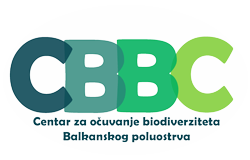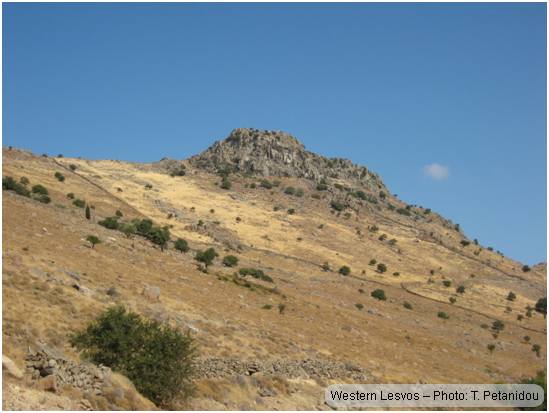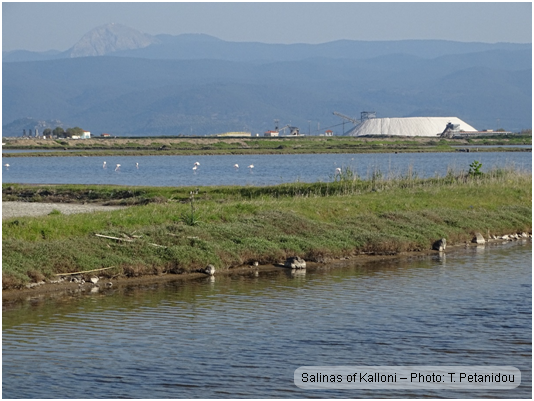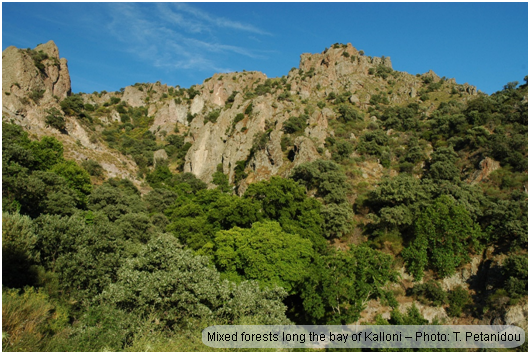
Dear participants of the ISS10, Thank you to everyone who made ISS10 a Success! Here you can find the Book of Abstracts. See you in two years in France!
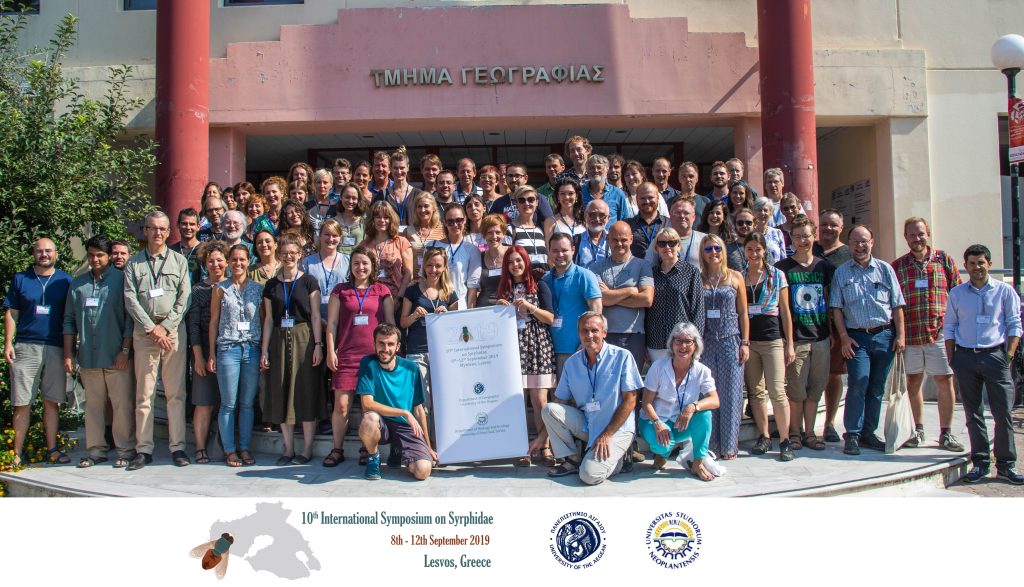
Dear fellow Syrphidologists and Entomologists, It is a great pleasure to invite you all to attend the 10th International Symposium on Syrphidae (ISS10). The main objective of the Symposium is to bring together people interested in hoverflies, to promote the study of hoverflies, as well as develop professional or private collaborations based on this insect group. We are sure that this 10th jubilee Symposium will be a scientific highlight for colleagues from around the world, as well as all symposiums before. During the 18 years since the first Symposium was held in Stuttgart, great progress has been made in the research, as well as in the international collaborations among syrphidologists. As a direct result, the 10th Symposium will cover all major aspects of syrphidology, such as systematics and (integrative) taxonomy, morphology, evolution, biodiversity and conservation, biogeography, ecology etc. The Symposium will be held on the beautiful Aegean island of Lesvos, Greece, from 8th to 12th September 2019, co-organized by the University of the Aegean, Department of Geography, Mytilene, Greece and University of Novi Sad, Faculty of Sciences, Department of Biology and Ecology, Novi Sad, Serbia. We look forward to meeting you all in Greece!
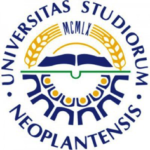

Location
Lesvos is a Greek northeastern Aegean island, embedded in the coast of Asia Minor, and as such constitutes a biological, geographical, climatic and cultural interface between Europe and Asia. Nowadays, Lesvos is separated from Turkey by the narrow Mytilene Strait, but was joined to the Anatolian mainland before the end of the last glacial period (in late Palaeolithic, early Mesolithic times). With an area of about 1,600 km2 and more than 300 kilometres of coastline, it is the third largest island in Greece. It has been inhabited since the Middle Paleolithic and during its more recent historical times was influenced by the Romans, the Franks, the Genoese and the Ottomans, each leaving their distinct marks. Today, Mytilene, the island’s picturesque capital, is home to about one third of the total island population of about 85,000. The rugged and hilly island, which has two peaks of about 1000 m altitude, is covered in roughly equal parts by olive groves, forests, mainly pine, but also oak and chestnut, as well as high and low scrub vegetation. The complex geology, beautifully displayed in Sigri’s Museum of Natural History and the Lesvos Petrified Forest Geopark, as well as the abundant hot springs, provide impressive evidence of the island’s partially volcanic origin. The climate is typically Mediterranean with hot, dry summers and relatively mild, rainy winters. The mean annual temperature is 18 °C, and the mean annual rainfall is 750 mm. Spring and autumn are considered ideal seasons for visiting the island, especially by naturalists, due to the mild weather, the wealth of flowering plant species, the bird migration and the overall impressive level of biodiversity active during these times.
 Natural history research in this part of the world has a long history and no other than Aristotle and Theophrastus, by many seen as the fathers of Zoology and Botany respectively, have spent years on Lesvos studying the island’s extensive biodiversity. Today, the island hosts part of the University of the Aegean, most notably the Departments of Marine Sciences, Environmental Sciences and Geography, which in the footsteps of Aristotle and Theophrastus endeavour to study the natural world of the region. The Laboratory of Biogeography and Ecology, headed by Prof. Theodora Petanidou, has carried out and facilitated research on the island for over two decades, specializing on, but not limited to plant–pollinator interactions. To date a total of about 600 species of bees and 140 species of hoverflies have been recorded on the island alone. Reference specimens are kept in the ever-expanding Melissotheque of the Aegean, a unique collection of flower visitors of the Aegean islands and surrounding mainland areas.
Natural history research in this part of the world has a long history and no other than Aristotle and Theophrastus, by many seen as the fathers of Zoology and Botany respectively, have spent years on Lesvos studying the island’s extensive biodiversity. Today, the island hosts part of the University of the Aegean, most notably the Departments of Marine Sciences, Environmental Sciences and Geography, which in the footsteps of Aristotle and Theophrastus endeavour to study the natural world of the region. The Laboratory of Biogeography and Ecology, headed by Prof. Theodora Petanidou, has carried out and facilitated research on the island for over two decades, specializing on, but not limited to plant–pollinator interactions. To date a total of about 600 species of bees and 140 species of hoverflies have been recorded on the island alone. Reference specimens are kept in the ever-expanding Melissotheque of the Aegean, a unique collection of flower visitors of the Aegean islands and surrounding mainland areas.
Transport
Mytilene Airport, Lesvos Island’s only airport, is conveniently reachable via direct flights from Athens International Airport or Thessaloniki Airport. There are regular (at least three times a day) flights operated by four airlines Aegean Airlines, Olympic Airlines, Astra Airlines and Sky Express. All hotels are within quick and easy reach:- By bus (leaving from outside the airport building)
- By taxi (less than 10 minutes, fare 5-10€ depending on the hotel location)
- Rent a car (inside the airport building)

Money
The official currency in Greece is Euro (€). You can either exchange money at Athens Airport or use the cash machines (there is one on campus) on the island. The latter usually offer better exchange rates, but you might want to check with your bank beforehand.Sessions
All ISS10 sessions will be held at the University of Aegean, Department of Geography, University Hill, 81100 Mytilene, Greece. GPS reading of venue: 39.0848 N, 26.5692 E Formal on-site registration for ISS10 will be open on Sunday 8 September from 16:00 to 18:00, and Monday 9th September 2019 at 8:00 before the session opening. The Registration Desk will be situated in the Department of Geography building, the place of the symposium.Accommodation
The Organizing Committee strongly recommends staying at the hotel Heliotrope and Fontana Rooms as they are comfortable, close to the University (Heliotrope), and are affordable (Fontana, especially for students and delegates on a tight budget). Sharing a room is also encouraged, since the number of single rooms is limited and their availability cannot be guaranteed. Available rooms and other details are listed in the table below. Please book by email (Heliotrope Hotel: info@heliotrope.gr; Fontana Rooms: fontanaroomsmytilini@gmail.com) stating your arrival and departure dates and the room type you require. Please use “ISS10 Accommodation Booking” in the message title line as a reference in order to be eligible for the reduced room rate. If you are planning to share the room, please indicate the name of the other person(s). Accommodation is paid directly to the hotel.Heliotrope Hotel (20 min walking distance from the University) booking email: info@heliotrope.gr
| Heliotrope Hotel | Price in € per room per night (hotel tax included) | Breakfast |
| Single | 65 | Yes (buffet) |
| Double | 75 | Yes (buffet) |
| Triple | 90 | Yes (buffet) |
Fontana Rooms (Located inside the town; 45 min walking distance to the University) Booking email: fontanaroomsmytilini@gmail.com
| Fontana Rooms | Price in € per night per person (hotel tax included) | Breakfast |
| Shared accommodation (2, 3 or 4 beds per room) | 15 | No |
Registration
The registration for the ISS10 starts immediately, via a word form available here. Participants are kindly requested to fill in registration form and return it to syrphidae10@gmail.com before the dates indicated in the table below. You can now take advantage of our reduced rate early registration until the 31st May 2019. Please note that we can only accept registrations if the full payment of the fees has been received. Periods for registration categories and costs per delegate are as follow:| Dates | Registration cost | |
| Early registration | 25th March to 31st May 2019 | 250€ |
| Late registration | 01st June to 30th June 2019 | 300€ |
| *Student registration | 25th March to 30th June 2019 | 200€ |
- The admission to all sessions during the symposium
- The delegate package
- Symposium programme
- Lunch and two coffee breaks daily
- Welcome drink
- Official dinner
- Daily bus tickets from/to hotels
Payments details
The registration fee and the Excursion can be paid (only in Euros) (deadline for Early registration until Wednesday 31st May 2019 and Late registration until Sunday 30th June 2019) by credit/debit card or wire transfer using the following link https://www.ru.aegean.gr/epos/?id=247&lang=enAbstract submission and presentations and poster details
Abstract submission
Abstract submission starts immediately. Abstracts are required for both oral and poster presentations. They must be submitted by e-mail to syrphidae10@gmail.com, with subject “Abstract_YourName_Surname”. A layout of an abstract is available here. Please follow this style and use references only if necessary. Each abstract has a limit of 250 words (only text, exlc. name(s) and affiliation(s)). Only registered delegates abstracts will be considered for presentations. The deadline for abstract submission is 30th June, 2019.Oral presentations
The duration of regular oral presentations is 15 minutes (10 minutes talk + 5 minutes for questions). Presentations should be in Microsoft PowerPoint format saved as .ppt or .pptx (compatible with PowerPoint 2013), or a .pdf file. Presentations should have an aspect ratio of 4:3 and not 16:9 widescreen. Please use standard fonts such as Arial, Calibri or Times New Roman. Files must be named with the week day of presentation (Monday, Tuesday or Wednesday) and the presenter’s last name (e.g. Monday_Surname). Presentation can be uploaded at the Registration Desk at the time of physical registration on the computers provided or at the latest before the beginning of the session (before the opening for the morning session or just after lunch for the afternoon session).Poster presentation
Posters have to be in the following format: width: 800mm, length: 1000mm and must be mounted by the presenters on the corresponding poster boards provided by the organizers. All boards will be marked with the relevant poster title and author list. Poster boards and mounting materials will be available in the meeting room from the 8th September 2019 (Sunday, and during the first day of symposium). Poster session 1 will take place in the afternoon (17:00 – 18:00) on 9th September 2019 (Monday), authors are invited to mount their posters on Monday morning. Poster session 2 will take place in the afternoon (16:00 – 17:00) on 10th September 2019 (Tuesday), authors are invited to mount their posters on Tuesday morning. We ask all presenters to be present during the session and answer questions. List of poster presentations can be found in the Book of abstracts.Scientific program
Following the previous Symposium, the scientific programme will include sessions on Faunistics and Biogeography; Systematics and Phylogenetics; Biology and Ecology; Biodiversity Assessment and Conservation; and Integrated Pest Management and Biocontrol. You can find a detailed program of ISS10 here.Excursion
07:30 Bus pick-up point 1 07:45 Bus pick-up point 2 08:00 Bus pick-up point 3
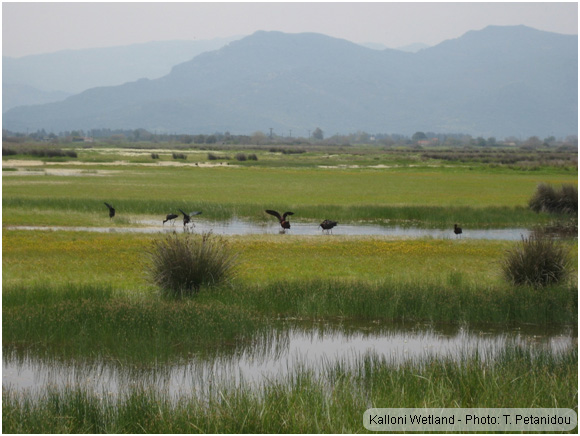

- Bus transport
- Museum tickets
- Light sandwich at 12:00
- Lunch at Skala Eressou
Group photograph
A group photo will be taken on Wednesday, 11th September before the afternoon coffee break, if weather permits. Changes can be made ad hoc in the unlikely case of bad weather. Delegates should meet outside the Geography building at 15:30.Important dates
- Early registration: until 31st May 2019
- Late registration: 01st June to 30th June 2019
- Student registration 25th March to 30th June 2019
- Abstract submission: until 30th June 2019
- Symposium: 8th to 12th September 2019
- Excursion: 12th September 2019
Other information for delegates
Should you require a personally addressed letter of invitation or other relevant documents please contact syrphidae10@gmail.com. It should be understood that such an invitation is only to assist participants in raising travel funds or obtaining a visa and is not a commitment on the part of the organizers to provide financial support. Microscopes will be available for delegates wishing to examine specimens. For collecting in Greece you need to have a permit issued by the Greek Ministry for Environment and Energy. In order to obtain such a permit you have to download, fill and submit an application form. The form is bilingual (Greek and English) containing all necessary information for the submission.Logo
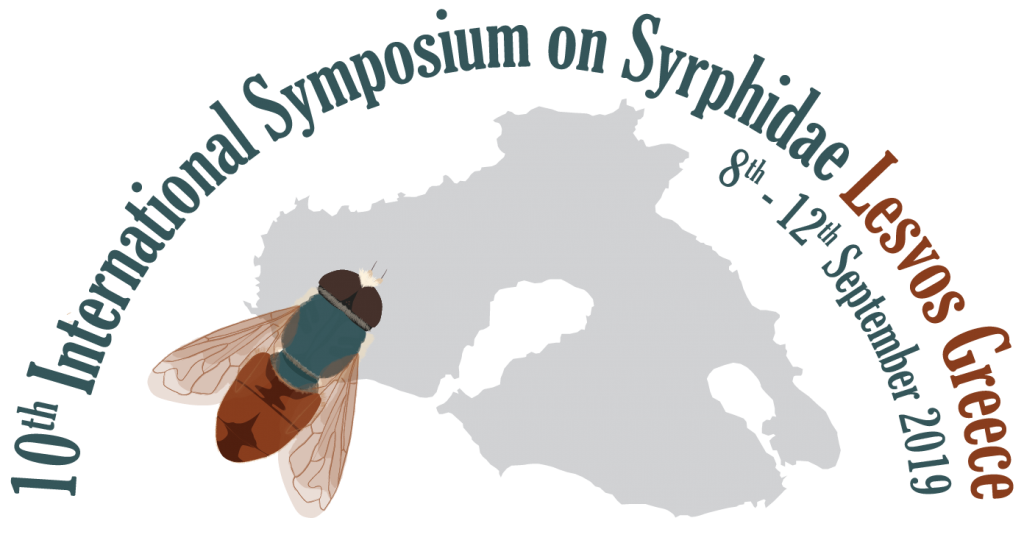
International Scientific Committee
Francis Gilbert, University of Nottingham, Nottingham, United Kingdom Gunilla Ståhls-Mäkelä, University of Helsinki, Helsinki, Finland Santos Rojo, University of Alicante, Alicante, Spain Mirian N. Morales, Universidade Federal de Lavras, Brazil John Smit, European Invertebrate Survey – Netherlands, Leiden, the Netherlands Ximo Mengual, Zoological Research Museum Alexander Koenig, Bonn, Germany Snežana Radenković, University of Novi Sad, Novi Sad, Serbia Mihajla Đan, University of Novi Sad, Novi Sad, SerbiaOrganizing committee
Theodora Petanidou, University of the Aegean, Mytilene, Greece Thomas Tscheulin, University of the Aegean, Mytilene, Greece Ante Vujić, University of Novi Sad, Novi Sad, Serbia Jelena Ačanski, University of Novi Sad, Novi Sad, Serbia Marija Miličić, University of Novi Sad, Novi Sad, Serbia Marina Janković, University of Novi Sad, Novi Sad, Serbia Dubravka Milić, University of Novi Sad, Novi Sad, Serbia Ana Grković, University of Novi Sad, Novi Sad, Serbia Laura Likov, University of Novi Sad, Novi Sad, Serbia

